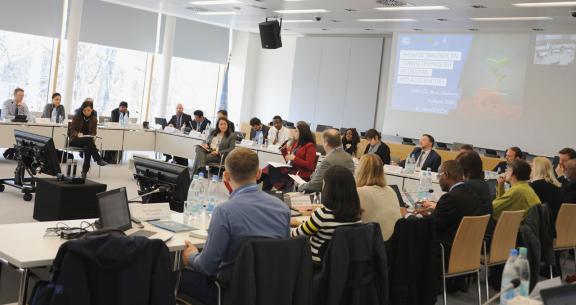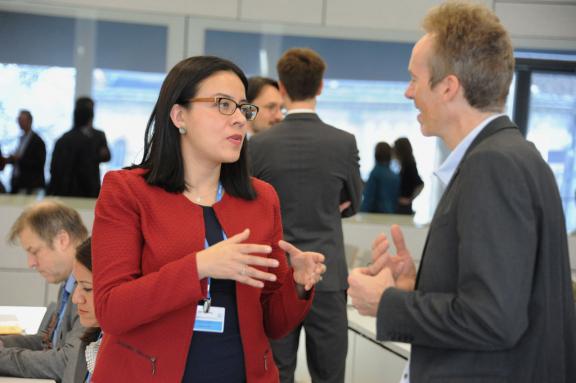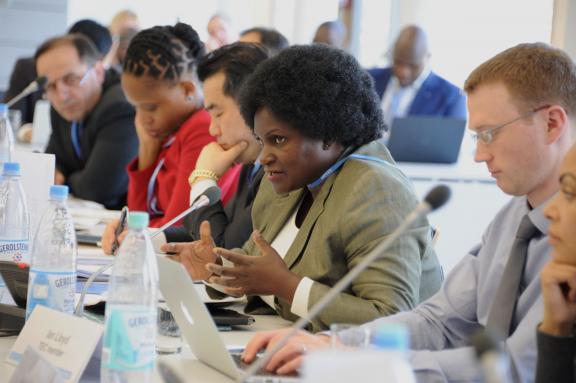GCF joins UN bodies to help entrepreneurs embrace climate technology
GCF joined efforts to harness the driving spirit of technological entrepreneurs in developing countries who are tackling climate change during a recent meeting in Bonn, Germany.
The Green Climate Fund joined efforts to harness the driving spirit of technological entrepreneurs in developing countries who are tackling climate change during a recent meeting in Bonn, Germany.
GCF partnered with two UN bodies, the Technology Executive Committee (TEC) of the UNFCCC and the Climate Technology Centre and Network (CTCN), in a dialogue of experts on Wednesday titled "Boosting climate technology incubators and accelerators in developing countries."

"Climate technology brings us closer to the goal of the Paris Agreement," Patricia Espinosa, Executive Secretary of the United Nations Framework Convention on Climate Change (UNFCCC) told the meeting.
Policy makers, clean technology experts, entrepreneurs, NGO representatives and academics explored ways of combining technological support with climate finance.
Technological innovation is recognized as a critical accelerator of national efforts to address climate change. Technology incubators and accelerators are designed to support entrepreneurs progress their climate action ideas through various stages of concept design and implementation, including help with training, guidance and networking.

GCF's Carolina Fuentes, Secretary to the Board and Head of Governance Affairs, highlighted the support the Fund provides projects driving high-tech innovation, including one in Rwanda and Kenya assisting off-grid solar power firms.
In addition to mitigation measures, GCF is also exploring how to use climate technology incubators and accelerators to strengthen adaptation and on ways to enhance private sector involvement, said Ms Fuentes.
Technological upgrades are enhancing various sectors of climate action - including energy generation, agriculture and the development of climate-resilient infrastructure and low-emission transport in developing countries' burgeoning cities.
Big leaps in data management are also improving the ability of climate information services and early warning systems to reduce the damage of extreme weather events.

A number of dialogue participants called on the need for technological advances to account for the social conditions of the countries where they are implemented.
Harish Hande, entrepreneur and co-founder of the Indian solar energy company SELCO, said he would like to see incubators and accelerators reduce inequality, while also achieving climate benefits. "How can the poor be innovators themselves?", he asked.
The dialogue will feed into GCF's current work on developing a request for proposals on climate technology incubators and accelerators that is due to be considered by the GCF Board.
Also attending the event were Claudia Octaviano, Chair of the TEC, and Jukka Uosukainen, Director of the CTCN.
You can find more about the dialogue, including through an event webcast, at the UNFCCC website.